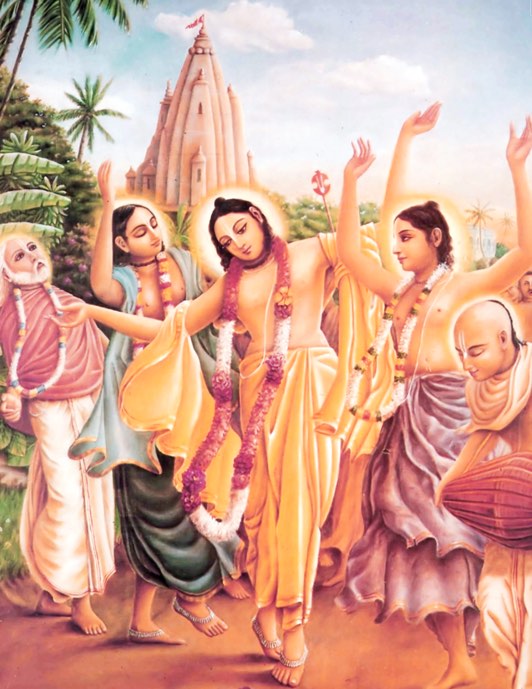
Romapada Swami has been teaching and practicing bhakti-yoga for fifty years. The word bhakti means divine love. Bhakti is the divine love that is dormant within the heart of every person of any spiritual faith. It is the happiness that everyone is seeking and the highest potential of all beings. All spiritual traditions which help their adherents awaken this love practice bhakti because love for the Supreme is the eternal nature of all souls.
The word yoga is commonly translated as connection, union, or service. Bhakti-yoga is a spiritual discipline that brings one to a state of loving devotional service to God. The essence of bhakti-yoga is relationships with others because bhakti-yoga connects our true self—the atma, or soul—to its divine source, and connects us to every other living being in the most meaningful way—through God.
Historically, bhakti had been central to India’s spiritual culture for thousands of years, but over the course of time, the essence of bhakti had become lost in rituals and prejudiced customs. Around the sixth century, a bhakti revivalist movement emerged from the writings of mystics who extracted the essence of the ancient scriptures. These South Indian mystics expressed their intimate longing for God through philosophy, song, and poetry. Their disciples, such as scholars and saints Ramanuja, Madhva, Nimbarka, Vallabha, and Chaitanya, organized their teachers’ revelations into different lineages (sampradayas) of devotional yoga.
These revered teachers developed a religious and social movement that proliferated even outside of India. In the 1960s, the bhakti movement left India and arrived on the shores of countries all over the world by the hands of Romapada Swami’s teacher, A.C. Bhaktivedanta Swami Prabhupada.
While this recounting of history provides an interesting insight into the development of the bhakti movement, the bhakti-yoga process transcends time and place.



